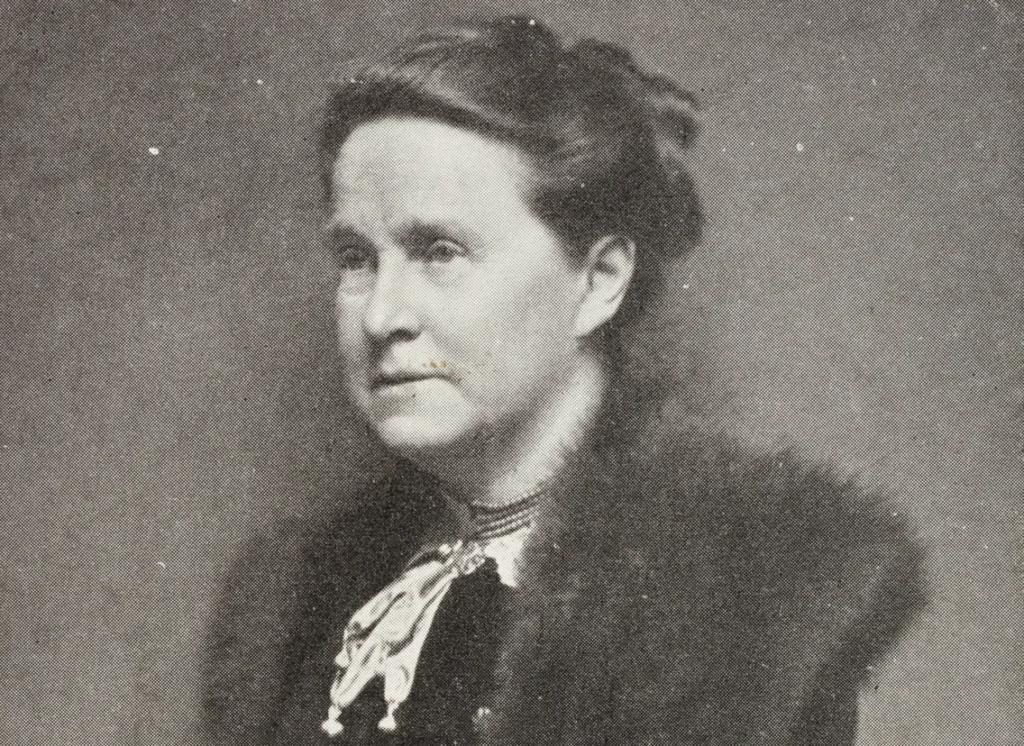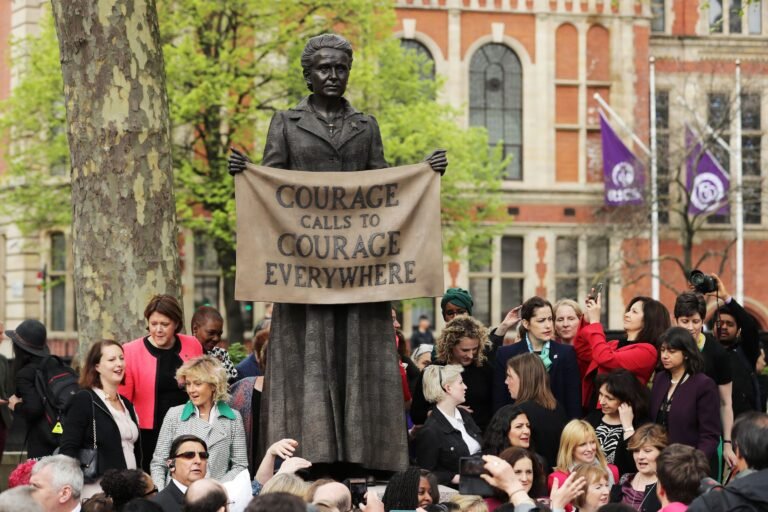A Legacy Built on Determination
Millicent Fawcett stands as one of the most influential and enduring figures in the history of British feminism. As a tireless advocate for women’s suffrage and education, she helped lay the foundations for gender equality through reasoned debate, non-violent activism, and an unshakable belief in justice. While others in the women’s rights movement adopted more militant tactics, Fawcett led with patience, intelligence, and unwavering commitment to peaceful reform. Her impact on British society and the world remains profound, making her an enduring symbol of progress and persistence.
In an era when women were excluded from nearly every aspect of political life, Millicent Fawcett rose above the limitations imposed on her gender. She became the voice of moderation and logic in a rapidly evolving social movement, guiding the women’s suffrage campaign through some of its most pivotal moments. Today, her contributions are remembered not only through history books but also by a statue in Parliament Square—a rare honor for a woman in British public life.
Early Life: A Foundation of Education and Empowerment
Millicent Garrett Fawcett was born on June 11, 1847, in Aldeburgh, Suffolk, into a progressive and intellectually vibrant family. Her parents, Newson and Louisa Garrett, were advocates of education and ambition. Her sister, Elizabeth Garrett Anderson, would become the first female physician in Britain—a feat that certainly inspired Millicent’s own path toward advocacy and reform.
From a young age, Fawcett exhibited an extraordinary intellect and a precocious sense of justice. She was educated in London at a private boarding school and later attended lectures at University College London, an uncommon opportunity for women at the time. These formative years shaped her understanding of the power of education and civic engagement, values that would guide her lifelong activism.
Meeting John Stuart Mill: A Turning Point in Political Awareness
A significant moment in Fawcett’s early political life came when she attended a lecture by the renowned philosopher and political economist John Stuart Mill. His views on liberty, equality, and women’s rights resonated deeply with her. At just 19, she became actively involved in the women’s suffrage movement, helping to distribute pamphlets and gather signatures for Mill’s petition to Parliament advocating for women’s right to vote.
Mill’s influence on Fawcett was profound. She later cited him as a central figure in shaping her political ideology, particularly his belief that equal rights could be achieved through rational dialogue and peaceful persuasion rather than confrontation or violence. These principles would become the cornerstone of Fawcett’s leadership style in the years to come.
Marriage and Partnership: A Union of Equals

In 1867, Millicent married Henry Fawcett, a Liberal Member of Parliament and the Postmaster General, who was also blind due to a shooting accident. Their marriage was one of mutual respect and intellectual partnership, rare in Victorian Britain. Millicent served as his secretary and adviser, actively participating in his political life and supporting his progressive policies, including those related to women’s rights.
Their partnership was instrumental in giving Millicent a deeper understanding of parliamentary processes and public policy. When Henry passed away in 1884, Millicent did not retreat from public life. Instead, she deepened her commitment to social reform, eventually emerging as one of the most respected leaders of the women’s suffrage movement.
Leader of the National Union of Women’s Suffrage Societies (NUWSS)
In 1897, Millicent Fawcett became president of the National Union of Women’s Suffrage Societies (NUWSS), the organization that unified many of Britain’s moderate suffrage groups. Under her leadership, the NUWSS distinguished itself from more radical organizations like the Women’s Social and Political Union (WSPU), led by Emmeline Pankhurst.
Fawcett believed that sustainable change could only be achieved through constitutional means—legal petitions, public education, and parliamentary lobbying. She emphasized reasoned argument, statistical evidence, and the moral high ground. Her strategic leadership helped grow the NUWSS to more than 50,000 members by 1913, making it the largest women’s rights organization in Britain.
Peaceful Advocacy vs. Militant Tactics
The contrast between Fawcett’s NUWSS and the militant suffragettes of the WSPU was stark. While the Pankhursts engaged in hunger strikes, window-smashing campaigns, and public disruptions, Fawcett continued to believe in peaceful persuasion. Though she respected the passion of the suffragettes, she worried their tactics would alienate public support and hinder legislative progress.
This philosophical divide caused tension within the movement, but it also allowed the campaign for women’s suffrage to appeal to a broader spectrum of British society. Fawcett’s moderate tone attracted support from politicians, intellectuals, and even sections of the media that were otherwise hostile to militant activism.
World War I and the Turning Tide
The outbreak of World War I in 1914 dramatically changed the political landscape in Britain. While many suffragettes suspended their campaigns to support the war effort, so did Fawcett and the NUWSS. However, unlike the WSPU, which took a more nationalist stance, the NUWSS focused on humanitarian aid, medical support, and women’s employment initiatives.
Women’s contributions to the war effort—working in factories, serving as nurses, and keeping the economy afloat—helped shift public opinion. Fawcett wisely recognized this as an opportunity. She argued that if women could help defend the nation, they certainly deserved a voice in its governance.
Her efforts bore fruit in 1918 when Parliament passed the Representation of the People Act, which granted voting rights to women over the age of 30 who met certain property qualifications. While it was not full suffrage, it marked a monumental victory.
The 1928 Equal Franchise Act: A Dream Fulfilled
Millicent Fawcett’s long campaign reached its ultimate triumph in 1928 when the Equal Franchise Act granted women voting rights on the same terms as men—removing age and property restrictions. Fawcett, then 81 years old, was present in Parliament to witness the act become law.
This moment was the culmination of over six decades of tireless advocacy, reasoned argument, and strategic campaigning. Fawcett’s unwavering belief in peaceful reform had finally reshaped the British political system to recognize women as equal citizens.
Honoring a Legacy: Millicent Fawcett Today
Millicent Fawcett passed away on August 5, 1929, just a year after achieving her life’s mission. Though her name was once overshadowed by the more dramatic tales of militant suffragettes, she has since received widespread recognition for her vital contributions to democracy.
In 2018, marking 100 years since women won the right to vote, a statue of Millicent Fawcett was unveiled in Parliament Square—making her the first woman to be commemorated in that iconic location. The statue bears her famous slogan: “Courage calls to courage everywhere.”
This tribute symbolizes the enduring relevance of her work and the importance of her legacy in the broader narrative of civil rights and gender equality.
Millicent Fawcett’s Enduring Influence on Feminism
Fawcett’s philosophy of measured reform over radical confrontation continues to inspire feminists, policymakers, and educators. She demonstrated that activism doesn’t always require aggression to be effective. Her methods were deliberate, dignified, and deeply persuasive—proving that change can be both powerful and peaceful.
Her legacy also reminds us of the importance of inclusivity and cooperation in social movements. By working alongside men, supporting women across class lines, and advocating for educational reforms, Fawcett broadened the scope and appeal of feminism in her time.
Conclusion
Millicent Fawcett was more than a suffragist; she was a stateswoman, intellectual, and moral leader whose influence transformed British society. Her life’s work—achieved not through force, but through persistence and reason—remains a guiding light for movements pursuing justice today.
As we reflect on her legacy, we are reminded that real change often comes through patience, strategy, and an unrelenting belief in the righteousness of the cause. Millicent Fawcett may not have sought the spotlight, but her fearless dedication ensured that every woman in Britain today can walk into a polling station with a ballot in her hand and a voice that counts.
Read more: Tiffany Stratton: Rising WWE Star, Career Highlights, and What’s Next for the Blonde Bombshell


